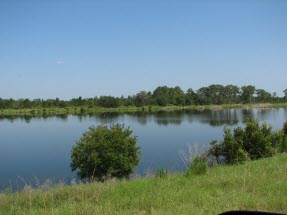Environmental Engineering for Industrial Wastewater
In two previous blog posts we dealt with an overview of environmental engineering and industrial wastewater permits. In this paper, we will discuss environmental engineering required to address  industrial wastewater. To explain, this is the engineering required to treat wastewater so it does not pollute surface waters, or so it is within tolerable limits and virtually has no impact. And so, environmental engineering determines the best reasonably achievable control technology to treat wastewater. To accomplish this, the environmental engineer designs, tests, and adjusts the treatment process.
industrial wastewater. To explain, this is the engineering required to treat wastewater so it does not pollute surface waters, or so it is within tolerable limits and virtually has no impact. And so, environmental engineering determines the best reasonably achievable control technology to treat wastewater. To accomplish this, the environmental engineer designs, tests, and adjusts the treatment process.
In Florida, a licensed Professional Engineer (P.E.) signs and seals NPDES Industrial Wastewater permit applications. To do so, the engineer only practices in areas that he/she has the required education, training, and experience. That means that the P.E. must have industrial wastewater knowledge and experience.
Start with the Pollutants
The pollutants in the wastewater determine the treatment. The environmental engineer must become familiar with the industrial materials and processes generating the wastewater. Following are a few pollutants which may be of concern:
- Heat (thermal)
- Nutrients (phosphorus and nitrogen)
- Biochemical Oxygen Demand (e.g., organic matter)
- Heavy Metals
- Volatile Organic Compounds (VOCs)
- Radioactivity
- Particulates resulting in Turbidity
The actual pollutants determine the engineering design for treatment.
Clean It Up
The goal is to clean up the wastewater so the pollution is below State standards before discharge. However, sometimes mixing zones are approved if the concentration exceeds the standard at the discharge point. To explain, the discharge mixes with the receiving water so that downstream it is below State standards. Keep in mind that FDEP (Florida Department of Environmental Protection, www.floridadep.gov) approves all mixing zones in Florida. Just remember, FDEP requires a very good reason why the State standard cannot be met at the discharge point.
Treatment Design
The treatment design addresses the pollutants. Here are a few examples:
- Cooling of heated (thermal) wastewater
- Primary and secondary settling of particles in pond or tank
- Aeration to allow microorganisms to degrade organic matter
- Chemical additives to oxidize or coagulate select pollutants
- Percolation to allow removal in the soil
- Filtration
Role of the Environmental Engineer
The environmental engineer completes several tasks. First, he/she reviews the industrial process, including materials and chemicals, that create the industrial wastewater. Next, he/she evaluates several treatment designs and runs calculations to determine which one will work best and will be affordable. Then, the engineer prepares the permit application and submits it to FDEP and/or the County. Next, the engineer provides additional information requested. Finally, after the FDEP or County issues the permit, the engineer makes sure it meets good engineering practice and will work. After that, the engineer monitors the treatment process in light of the permit conditions, if requested.
 So, now you know how environmental engineering is used to treat industrial wastewater! If you need any assistance, Environmental Safety Consultants
So, now you know how environmental engineering is used to treat industrial wastewater! If you need any assistance, Environmental Safety Consultants
(www.escflorida.com) is here. ESC holds a Florida license in engineering and has a P.E. on staff. ESC has the credentials and experience to meet your industrial wastewater needs. Contact ESC today (https://www.escflorida.com/contact/). ESC strives to reply to all contacts promptly!
